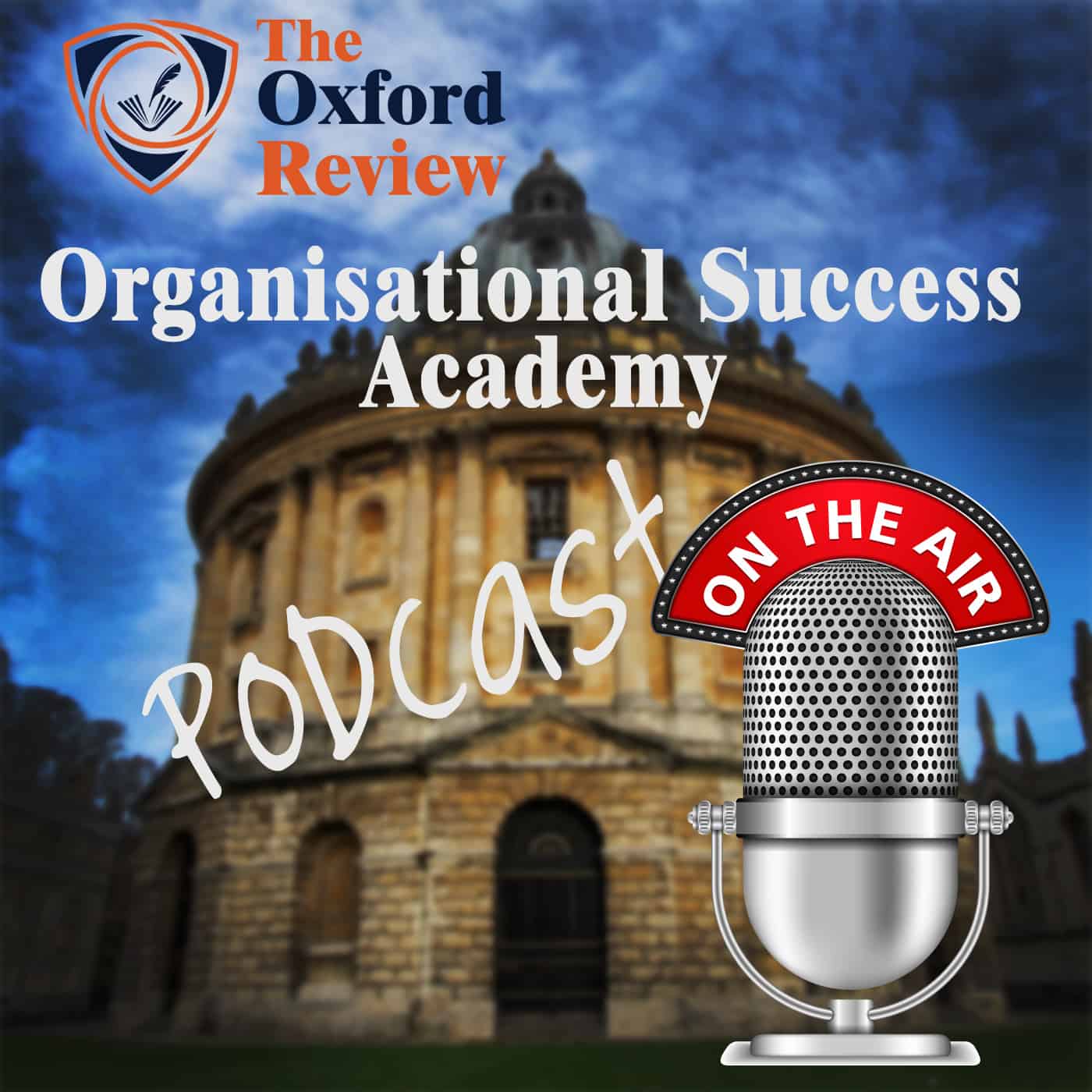- in Blog , Podcasts by David Wilkinson
- |
- 1 comments
Does your organisation’s reputation make any practical difference?

In this podcast David provides a research briefing on some new research looking at the effects of corporate reputation on the people who work inside the organisation and the organisation’s performance in the market and has made some interesting finding.
#research #reputation #orgdev #corporatereputation #oxfordreview
99% of everything you are trying to do...

...has already been done by someone else, somewhere - and meticulously researched.
Get the latest research briefings, infographics and more from The Oxford Review - Free.
Transcript
An interesting study has just been published that looks at the effects of corporate reputation on the people who work inside the organisation and the organisation’s performance in the market.
The researchers used 263 data points and a process called structural equation modelling, which is a whole set of computer modelling and factor analyses processes to discover relationships between variables.
They looked at things like how employees felt, how motivated they were, their behaviour, intention to leave etc., as well as the performance of the organisation in the market, compared to other organisations in their industry.
They also looked at indicators of the organisations current reputation externally. Corporate reputation is considered to be an asset much like any other asset that either adds to or subtracts from the value of the organisation. Corporate reputation is really the sum of the dominant set of perceptions about the organisation and the value it provides in a wider, non-economic, social context. In effect is it useful to society, the industry, market etc. or is it driven by self-interest and provides little or no intrinsic external value beyond profit?
Does a performance dip always occur during organisational change?
They discovered a number of things:
- That the culture in the organisation is a strong predictor of the reputation the organisation eventually gets.
- That communication with external stakeholders is a vital ingredient in the perception they have of the organisation. In effect the communication can help to scaffold the reputation of the organisation as long as what comes out of the organisation is aligned with its communications.
- Reputation depends on five areas of performance:
- The reliability of the management, particularly financially. Good financial controls and management helps to build trust.
- Consistency of the perceived quality of the products and services offered. This includes the service people get at all points of contact with the organisation.
- Environmental responsibility, this includes the wider environment and health of the globe and local environment. It also includes social environment, for example, whether it looks after the community its workers come from.
- Customer orientation. Does the organisation or company, and its people, focus on helping their customers meet their long-term needs and wants.
- How it treats its employees.
- That the reputation of the company significantly predicts employee and customer loyalty towards the organisation.
- That the reputation of the organisation also predicts the longer-term performance of the organisation.
Your organisation’s reputation is more than image. Reputation is based on the solid foundations of financial management, the quality of its products and/or services, whether it takes its environmental responsibilities seriously, and how it treats its employees.
The reputation an organisation builds, will then strongly predict how it does over the long term and how loyal its employees and customers are.
It matters.
Reference – available to members
Not a member?
Apply to join now and get:
- Weekly research briefings sent direct to you every week
- A copy of the Oxford Review containing between twelve and sixteen additional research briefings every month
- Research Infographics
- Video research briefings.
- The occasional special reports / short literature reviews on topics that appear to be getting a lot of research attention or if there has been a recent shift in the thinking or theory
- The ability to request a watch list for new research in keyword areas (as long as it is within the realms of:
- Leadership
- Management
- Human resources (not legal aspects)
- Organisational development
- Organisational change
- Organisational learning
- Learning and development,
- Coaching
- Work Psychology
- Decision making
- Request specific research / brief literature reviews
- Access to the entire archive of previous research briefings, copies of the Oxford Review, infographics, video research briefings and special reports.
- Access to Live Reports – continually updated as new research on the topic is released
- Members only podcasts – research briefings in audio – coming soon
- Live continually updated reports
Be the most up-to-date person in the room
Apply to join now
Be impressively well informed

Get the very latest research intelligence briefings, video research briefings, infographics and more sent direct to you as they are published
Be the most impressively well-informed and up-to-date person around...

2laundry